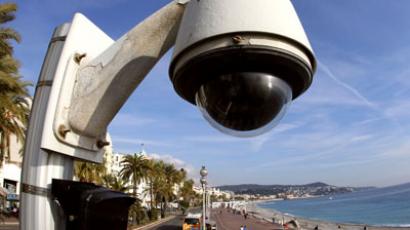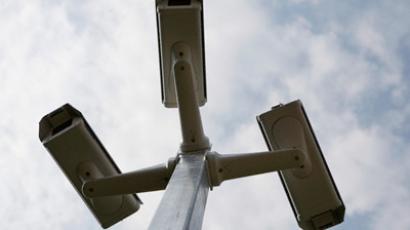'Surveillance gives false sense of security both to public and police'
Twenty million people make their way through Manhattan every day. Although they’re surrounded by security cameras on nearly every corner, one expert says the surveillance only provides New Yorkers and police with the illusion that they’re protected.
In reality, the technology is incapable of stopping an attack before it happens. RT caught up with private investigator Steve Rambam on the streets of New York City to talk about TrapWire – the high-tech clandestine surveillance system recently uncovered by WikiLeaks.RT: What is TrapWire, and who owns it?Steve Rambam: TrapWire is owned by the Braxis Corporation. It was developed by three former CIA agents. It’s essentially a system that takes data such as facial recognition, suspicious activity reports, license plate reader camera reports, all types of intelligence and other information. It feeds it into a software system and attempts to predict if there’s going to be a terrorist attack on a location. The theory behind TrapWire is that there’s going to be a bit of reconnaissance before a target is hit. So, this system looks for people acting in a way consistent with terrorists doing reconnaissance on a target. And if that person is suspected, it takes that person’s face – which has been filmed – and tries to match it to databases of known or suspected terrorists.RT: Is TrapWire legal?SR: First of all, anything you do on a public street is legal. I can take a camera and follow you everywhere you walk on a public street. I can record every building you go into. I can write down your license plate. I can take photos of everybody you meet with. You have no expectation of privacy on the street.RT: At this moment, we’re standing on a street corner in midtown Manhattan. How many eyes are on us?SR: Countless. At this point, anywhere in Manhattan, from approximately 59th Street all the way down to the Battery, there is no location where you can go on a public street or in most buildings where you’re not being videoed. This part of America is equivalent to the eye of God, I can follow you from camera to camera to camera. If you started walking south and you walked all the way to the Battery Tunnel, I would have you on camera constantly. The entire way.RT: And that video is then stored and encrypted?SR: They are encrypted at the point of recording, and then transmitted to a central storage location.RT: What bothers or concerns you about this program?SR: It gives a false sense of security to the public. And it gives a false sense of security to law enforcement agencies. If I’m a terrorist, I can put a backpack on my shoulder, walk into the middle of Grand Central station during rush hour and set off an explosive. And there is nothing that TrapWire can do to detect me or stop me.














